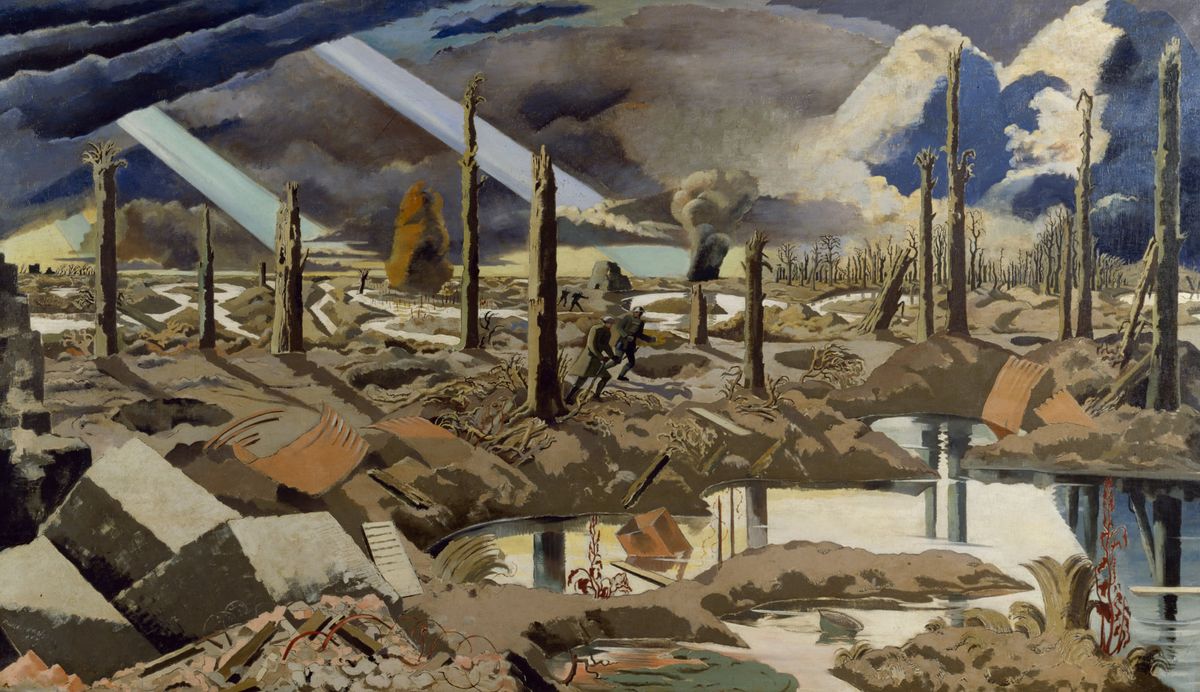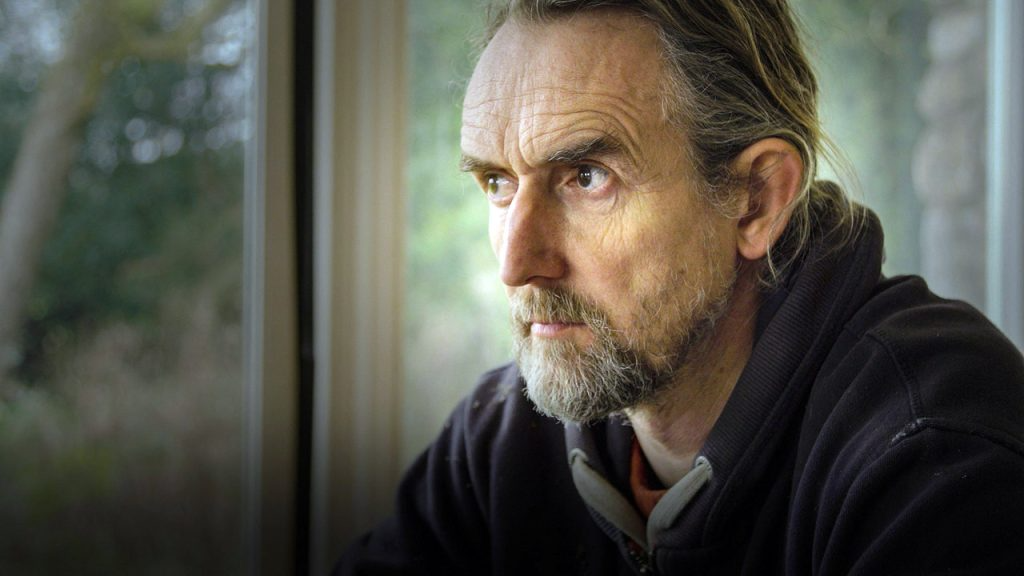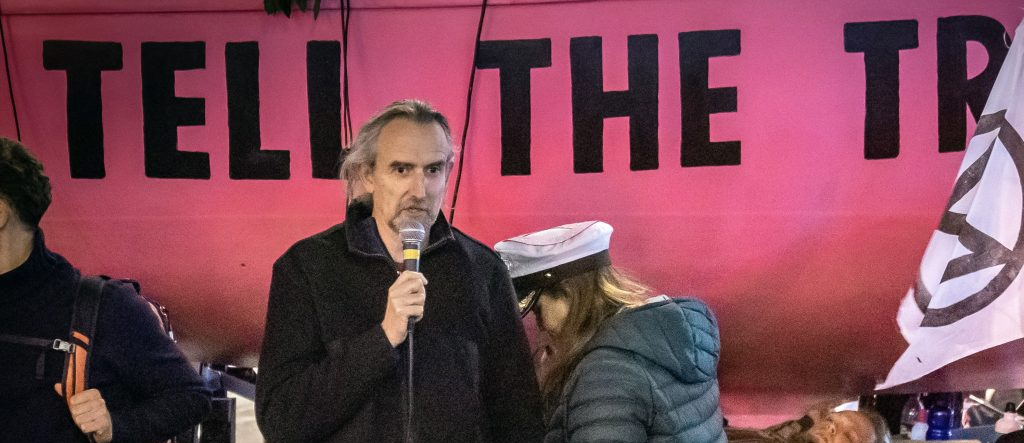Our Responsibilities at this Time

I usually do not respond to people's FB posts, not least because there are only 24 hours in the day. But I would like to make some comments on Jon's recent post (See full text below). I want to be clear that I have the greatest respect for Jon Fuller, and although Rupert Read and I have profound differences, we are clear these differences are not personal.
I want to challenge the fashionable assumption that as long as people are "working damn hard" everything is all good. It is not. Some actions are more effective and moral than others, and in an emergency – by definition – only one action counts, and that is emergency action. When a house is on fire, as is the usual analogy, and children are about to burn to death inside the building, there is only one course of action: to break down the door, run in, grab the kids and bring them out – whether or not they will have died by the time you get to them, whether or not this will cause harm to yourself – and regardless of whatever you planned to do.
We are facing an absolute emergency, an obscenity beyond words: a project by governments to allow the murder of billions of the young and poor to maintain the power and wealth of a tiny minority, as Jon fully accepts.
In such a situation, there are not a range of courses of action. There is only one moral and effective course of action, repeated hundreds of times in human history when rulers engage in mass violence: rebellion; in the modern context it means a specific activity: civil resistance. And in the British context, we know what that means from intelligence from people within the State: mass engagement in the legal breaking of laws, leading to over 3000 arrests over two to three weeks -I would add around 500 people being imprisoned on remand, give or take. That is the only way to create rapid legislative action from the government. That is what breaking down the door looks like. And everyone has to drop what they are doing to get it to the tipping point – the force which breaks down the door. We have not succeeded yet because too many people are doing other things that don't work.
And the reason for this is that, although people "intellectually" understand the Emergency, they choose not to engage with it emotionally -or spiritually. They engage in displacement activities to avoid the reality of their responsibilities. Which is why I suspect 350 people liked Jon's post – everyone can feel like they are doing their bit. No – that is not what it's like in an emergency, sorry. It's not about us all getting on, and being nice. There is a specific job to be done.
I always remember Nicolas Stein, of the London School of Economics, causally predicting (as elite figures do) that climate change this century will be like World War One, World War Two, and the Great Depression rolled into one. So here is a quote of what I recently read about Passchendaele in 1917 (described by British historian AJP Taylor as "the blindest slaughter of a blind war"):
"The goal was yet another fantasy of General Haig's, a plan to break out of the Ypres Salient and capture Antwerp and the Channel ports of Belgium. For the British soldiers it was the worse battle of the war. The ground was flat, sodden, shattered by shell fire. On the first night of the assault, the last day in July, the rains began, and after a brief respite in September, did not cease until November. Three thousand British guns fired more than four million explosive shells, nearly five tons of high explosive for every yard of German trench. The result was a muddy quagmire, a sea of black waste and shell holes, carcasses of horses and men, rats the size of cats, clouds of yellow and brown mist, an unbearable stench of rot and gangrene, the sweet smell of violets, which was the smell of gas and thus also the odour of death. To slip wounded off a duckboard was to drown in fathomless morass. Gunners worked thigh-deep in water. To advance over open ground, soldiers used the bodies of the dead as stepping stones. On the day of the final assault, a senior British staff officer close to Haig, Lieutenant General Sir Launcelot Kiggell, made his first-ever visit to the front. Reaching as far as his car could advance, appalled by the conditions, he began to weep. "Good God," he said, "did we really send men to fight in that?" The man beside him, who had been in action replied flatly, "Its much worse further up"."
(from "Into the Silence: The Great War, Mallory and the Conquest of Everest". Wade Davis, 2011.)
"It's much worse further up". The reason why we have not yet succeeded against those who plan to take our children into this Hell is that we have not yet travelled to the front line – and when we get there, we will find out "it's much worse further up". Our generation's cowardice will be treated with the same utter contempt and disgust that history now looks upon the pathology of General Haig.
Displacement activities in the present context are all about denying death. So once you have read this post do the following: think about the humiliation and pain you will suffer in the lead up to your death. Think about the actual inevitable act of your death. Think about what will happen to you after you are dead. Feel how that feels. Then look in a mirror and ask yourself a simple question "what are my responsibilities at this time?"
Burning Pink and related networks are recruiting people prepared for civil resistance in 2021: action will result in arrest and remand in prison. To meet with others ready to act upon their responsibilities, please email:
ring2021@protonmail.com
--
For those who did not read it, here is Jonathan N Fuller's post:
"Extinction Rebellion really stirred things up, bringing us together and giving us a far more powerful voice. But some of the founding mothers and fathers felt XR was losing its way and, given that Roger Hallam had been kicked in the nuts one too many times, he helped create 'Burning Pink' (formerly 'Beyond Politics'). Another significant figure was Rupert Read, who was sufficiently worried by XR's direction that he has now helped to form 'Greens Can'.
I know some people are distressed by fragmentation, but I'm relaxed about it. It needn't be a problem.
For the time being XR will remain the go-to group for those who become desperately worried as climate breaks down and a range of ecological pressures really begin to bite. This crisis is only going to get worse. A lot worse. So more people are going to come forward, no matter what key speakers ('spokes') do.
One of XR's structural problems is the tension between group autonomy, the desire to act through consensus and the creation of a strategic plan. It can be paralysing.
Personally I can't stand paralysis; if I encounter blockers or infiltrators (we do have them) I walk around them. For example, there is a tiny minority who don't like the language I use when tackling the media. There are people who don't like me to say the BBC "suppresses" the most alarming news or "the BBC has stolen from the young the one thing they needed to defend themselves - information". There are people who, for their own reasons, don't want to cause offence.
Here's the thing - I don't like the number of references to 'rape' and images of dildos in 'Burning Pink' materials and I don't agree with Rupert Read that the collapse of civilisation is inevitable (other than in several low lying island states, which are to be annihilated by the wealthy world), but I won't try to dictate to others what they do and what they say. So long as people are working damn hard to stop the greatest act of genocide in history, none of us should cut across them or slow them down.
As we move beyond Covid our most courageous and heroic activists will come forward with NVDAs. It may be XR, Burning Pink or GreensCan, or another new group. But it doesn't matter so long as we all get involved and take risks.
Literally billions of lives are at stake and none of us has the right to be a spectator. Everyone can do something to stop genocide. Make your plans now for your actions in 2021.
As for me, I've been put into isolation by the NHS. I came into contact with someone with C19 a few days ago but, provided I don't develop symptoms, I will be set free on 24th December.
In any event I planned a break to 4 January and will now be quiet for a while, unless something blows up. e.g. a sudden decision on the CGAN case."

